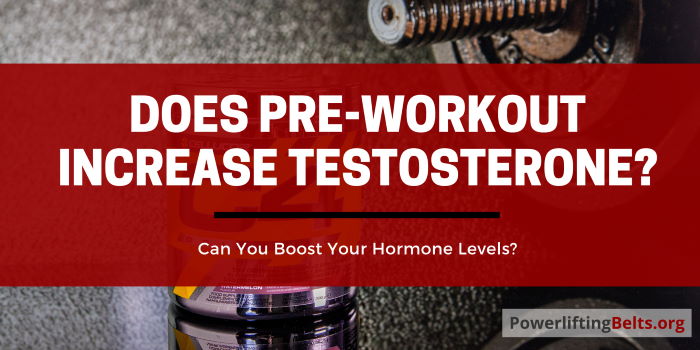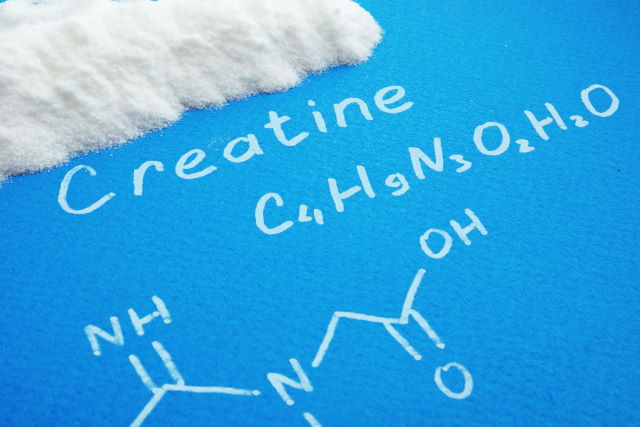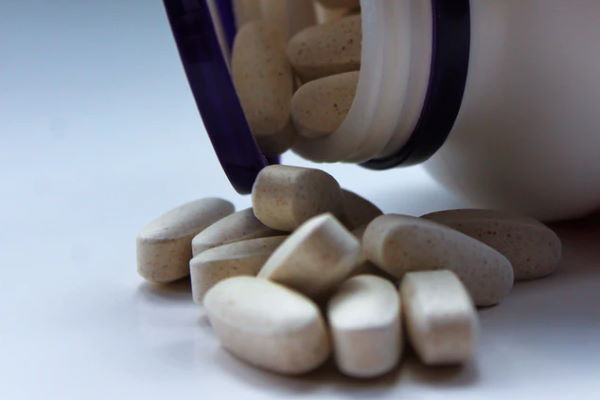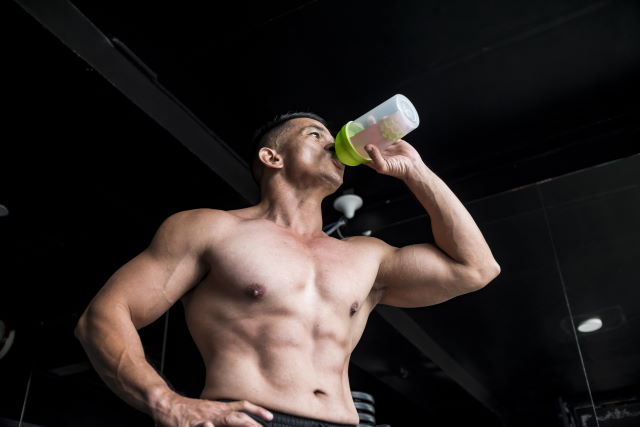
Testosterone is one hormone that plays an important role in the body. It is essential to both males’ and females’ overall health. In men, it plays an important role in sperm production. For both sexes, it helps to maintain a healthy libido.
Testosterone has several important roles. These include the following:
- Promotes healthy bones
- Improves fertility
- Increases and maintains lean muscle mass and strength
- Supports normal brain and cognitive function
These are all very important if you wish to look and feel your absolute best now and in the future. So you should take your quest for healthy testosterone levels seriously no matter your gender, age, or your current level of physical fitness.
How Pre-Workout Ingredients Affect Testosterone
Ingredients in pre-workouts are mainly added to improve muscle performance or help blood flow to the muscles. The number and volume of ingredients in a pre-workout supplement vary between products. Remember that an out-of-date pre-workout can have reduced effects. Here are some of the main ingredients you will find in most:
Caffeine
Nearly all pre-workout supplements contain caffeine. It increases blood pressure and heart rate making it seem like a good idea to boost energy levels and pump up those muscles. But there are some downsides to drinking coffee or supplementing with caffeine.

Caffeine also raises cortisol levels. This is the stress hormone that has been associated with a decrease in testosterone. However, some research has suggested that drinking coffee before exercise may actually boost testosterone levels.
Creatine
Creatine is a natural substance stored in human muscle tissue. It’s also present in some types of seafood and red meat, but in much smaller amounts than you’ll see in pre-workout products.
Creatine is generally considered safe, but there may be risks associated with taking it in very high amounts or for long periods of time. It might also interact with certain medications.

There are many forms of creatine but the common creatine monohydrate has been proven to improve athletic performance by increasing muscular endurance. It may also increase testosterone levels.
Studies show that it may help in increasing the conversion of testosterone to DHT. This is a more active form of the hormone which offers the benefits of testosterone but in smaller amounts.
Beta-Alanine
Beta-alanine is an amino acid linked to the production of Carnosine, which helps keep the muscle from becoming tired during intense exercise. Beta-alanine has shown many positive results for an athlete’s endurance, but there hasn’t been any direct link between beta-alanine and testosterone.
BCAAs
There are three types of branched-chain amino acids — L-leucine, L-isoleucine, and L-valine.
These are 3 of the essential amino acids. These are called essential amino acids because they’re needed by the body but cannot be produced by the body itself. We must obtain them from our diet or supplements.

Unlike most amino acids (which are broken down in the liver), the BCAA’s are broken down directly into energy by the muscles themselves. If you take them in a pre-workout, they can help give your muscles an immediate energy boost, especially if you’ve been fasting for some time beforehand.
BCAA supplements have also been shown to increase levels of testosterone during exercise. If you’re consuming enough BCAAS in your diet already, then taking a pre-workout product containing them might help boost your testosterone level.
Theanine
Theanine is an amino acid that has similar effects as caffeine. However, while caffeine gives you energy and increases your heart rate and blood pressure, theanine relaxes you and reduces stress while also improving mental focus.
When combined, theanine helps reduce the negative side effects of caffeine, like anxiety and increased blood pressure, making it a useful ingredient for people trying to maintain healthy levels of cortisol.
D-Aspartic Acid
D-Aspartic acid is said to increase the production of testosterone by increasing the levels of luteinizing hormones in the brain. Some pre-workout formulas include this, such as Old School Labs Vintage Blast.
However, the results of studies are mixed on this. One study found that testosterone increased by 42% after 12 days of use. Another study with younger males showed no increase in testosterone. If you suffer from lower-than-normal testosterone levels, then this may be useful for you.
Be aware that some users report an increase in acne from some pre-workouts containing d-aspartic acid.
L-Carnitine
L-carnitine is an amino acid found in foods including red meat and avocados. It is added to many pre-workouts to reduce muscle damage and reduce fatigue.
Research studies suggest that L-carnitine helps in reducing a drop in testosterone which happens during hard training sessions.
Studies also show that L-carnitine helps with testosterone receptors in keeping them available to receive testosterone in the blood.
L-Citrulline
L-citrulline or citrulline malate is another amino acid found in watermelon. If causes blood vessels to relax improving blood flow.
While it doesn’t necessarily affect testosterone directly, its blood vessel-dilating properties help with erectile dysfunction.
Can You Take Your Pre-Workout Supplement With A Testosterone Booster?
Yes, you can. This is on the assumption that you’re taking dietary supplements with healthy ingredients and without artificial additives. But what happens when you mix a pre-workout with a testosterone booster? Are you risking a dangerous interaction?

If your products contain natural compounds such as vitamins, minerals, adaptogens, herbs, amino acids, and antioxidant nutrients, there’s no reason to worry about interactions because these substances are naturally occurring in foods.
However, where you should take caution is when you’re taking a supplement that contains synthetic ingredients, including stimulants such as caffeine, ephedra, and many others. These chemicals could potentially cause adverse reactions in some people, especially those who are sensitive to them.
Always read labels carefully and take note of the ingredient list. And don’t forget to ask yourself whether you feel any side effects while taking the product. If you do experience any problems, stop taking it immediately and consult your doctor.
What Else Can You Do?
Avoid Estrogen
Exposure to estrogen-like compounds may affect testosterone production.
By reducing your intake of estrogen-like compounds, you may be able to improve your testosterone levels and overall health. Minimizing daily exposure to BPA, parabens, and similar chemicals found in certain plastics is important.
So make sure that your shaker and water bottles are BPA-free.
Get Adequate Sleep
Good sleeping habits are just as important for your physical well-being as diet and exercise. Poor sleep habits may affect testosterone levels negatively.

One study showed that having extra sleep was linked to greater levels of testosterone in older men.
Some people get by well with less sleep per night. But most researchers recommend that you aim to get at least 7 hours per night.
Minimize Stress
Long-term stress can increase cortisol levels in the body.
Elevated levels of cortisol can rapidly decrease testosterone. These hormone levels tend to fluctuate in a seesaw-type fashion: When one hormone level rises, another falls. If you often feel stressed out, practicing some relaxation methods could help.
Vitamin D
Vitamin D is an essential nutrient for good overall health. It’s estimated that up to one billion people across the world are deficient in vitamin D. Studies show that low levels of vitamin D may be associated with lower testosterone levels.
If you want to keep your vitamin D levels at healthy levels, try to be exposed to some sunlight regularly or take a daily vitamin D3 supplement.
Reduce Your Alcohol Intake
According to some studies, excessive alcohol consumption may lower testosterone levels. Alcohol consumption may cause testosterone to drop in as quickly as 30 minutes. Excessive alcohol consumption can cause reduced testicular function and even testicular atrophy.
Moderating your alcohol intake is important because too much alcohol can negatively affect your hormone levels and testicle health.
Signs That You Might Have Low Testosterone
Normal testosterone levels are 280 – 1100 ng/dL for males and 15 – 70 ng/dL for females. You may not be able to easily determine whether you have low testosterone levels. If you’re experiencing any of these symptoms, they could be caused by low testosterone:
- Difficult to gain muscle & strength
- Feelings of fatigue
- Reduced sex drive
- Low moods
- Poor quality quality
- Decreased bone density
Final Thoughts
You need to take care of your hormone levels if you’re going to be a serious athlete. Testosterone is responsible for maintaining your body’s muscle mass, strength, and fitness. Anything that reduces its levels just is not good
Pre-workouts shouldn’t directly lower your testosterone levels. Many of their ingredients will help increase hormone levels.
Like with all supplements, it’s all down to the ingredients contained in your chosen pre-workout.
Leave A Comment